Physical Activity Researcher
Hello and Welcome to Physical Activity Researcher Podcast! Physical Activity Researcher Podcast is the source of the latest research findings on all things related to physical activity, exercise, and health. World-renowned scientists and experts as guests in an informal and relaxed interview style format. New episodes on Tuesdays, Fridays, and Sundays. The podcast is for anyone who likes to learn scientific and evidence-based knowledge of physical activity, exercise, and health. Our listeners range from researchers to health and fitness professionals, and from inactive office workers to marathon runners. Podcast has several series and hosts each concentrating on different aspects of physical activity: Physical Activity Researcher Series The latest research findings in exercise physiology, biomechanics, physical education, coaching sciences, sport psychology, epidemiology, and public health. These episodes are hosted by researcher and entrepreneur Dr Olli Tikkanen. Meaningful Sport Series Meaningful Sport is dedicated to the exploration of meaning and meaningful experiences in sport and physical activity. Many studies have revealed instrumental benefits of physical activity, but is there something more to it, and how does it contribute to meaningful lives? This series is led by Associate Professor Noora Ronkainen. The series provides inspiration for exploring the meaning and value in sport and physical activity for everyone. Practitioner’s Viewpoint Series Practitioner’s Viewpoint Series has health and fitness professionals as guests. How they see sedentary behaviour and physical activity in their work? What are the best practices to promote physical activity? This series is for you if you are a Personal Trainer, Physiotherapist, Medical Doctor, Health Coach, or anyone working as a health and fitness professional. This series is lead by physiotherapist MSc Liis Kukkonen. Publishing schedule: Tuesdays: Physical Activity Researcher Series Friday: Meaningful Sport Series Sundays: Practitioner’s Viewpoint Series. + Bonus episodes and republications of past highlight episodes We hope you find value in the podcast! -Podcasting team-
Hello and Welcome to Physical Activity Researcher Podcast! Physical Activity Researcher Podcast is the source of the latest research findings on all things related to physical activity, exercise, and health. World-renowned scientists and experts as guests in an informal and relaxed interview style format. New episodes on Tuesdays, Fridays, and Sundays. The podcast is for anyone who likes to learn scientific and evidence-based knowledge of physical activity, exercise, and health. Our listeners range from researchers to health and fitness professionals, and from inactive office workers to marathon runners. Podcast has several series and hosts each concentrating on different aspects of physical activity: Physical Activity Researcher Series The latest research findings in exercise physiology, biomechanics, physical education, coaching sciences, sport psychology, epidemiology, and public health. These episodes are hosted by researcher and entrepreneur Dr Olli Tikkanen. Meaningful Sport Series Meaningful Sport is dedicated to the exploration of meaning and meaningful experiences in sport and physical activity. Many studies have revealed instrumental benefits of physical activity, but is there something more to it, and how does it contribute to meaningful lives? This series is led by Associate Professor Noora Ronkainen. The series provides inspiration for exploring the meaning and value in sport and physical activity for everyone. Practitioner’s Viewpoint Series Practitioner’s Viewpoint Series has health and fitness professionals as guests. How they see sedentary behaviour and physical activity in their work? What are the best practices to promote physical activity? This series is for you if you are a Personal Trainer, Physiotherapist, Medical Doctor, Health Coach, or anyone working as a health and fitness professional. This series is lead by physiotherapist MSc Liis Kukkonen. Publishing schedule: Tuesdays: Physical Activity Researcher Series Friday: Meaningful Sport Series Sundays: Practitioner’s Viewpoint Series. + Bonus episodes and republications of past highlight episodes We hope you find value in the podcast! -Podcasting team-
Episodes
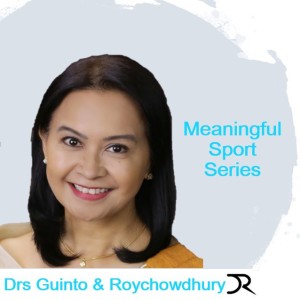
Friday Oct 29, 2021
Friday Oct 29, 2021
Mindfulness has become a panacea for well-being and performance and is widely used in workplaces, schools... and sports. Many sport psychology studies have documented its benefits for athletes and it has become one of the main topics of sport psychology conferences.
Despite all these benefits, many scholars and writers have expressed their reservations about how mindfulness is taken up and used in Western countries. Two scholars who have long hed these reservations are Dr Maria Luisa Guinto, an Associate Professor at the University of the Philippines Diliman, and Dr Dev Roychowdhury, a researcher and practitioner based in Melbourne, Australia. I had the opportunity to get to know them a couple of years ago and work together on an article that focuses on the transnational migration of mindfulness and what was gained and what was lost when mindfulness became mainstream in sport psychology. In today's episode, we will explore some of the arguments and share some stories behind the research.
Further resources to explore the topic can be found in Dev Roychowdhury's blog.
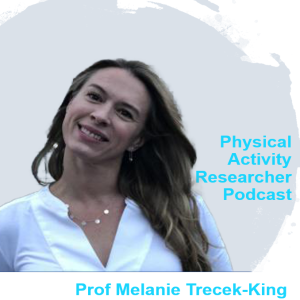
Tuesday Oct 26, 2021
What‘s Wrong with How We Teach Science? Prof Melanie Trecek-King (Pt1)
Tuesday Oct 26, 2021
Tuesday Oct 26, 2021
Melanie Trecek-King is an Associate Professor of Biology at Massasoit Community College in Massachusetts.
Her passion for science education led her to create Thinking Is Power to provide accessible and engaging critical thinking information to the general public.
In addition to her work in the classroom, Prof. Trecek-King is the Founder and Chair of Massasoit’s Sustainable Landscaping Committee, which uses environmentally responsible landscaping practices to conserve natural resources, reduce and prevent pollution, benefit wildlife, and enhance ecosystem functioning.
Trecek-King has a Bachelor of Science in Biology and Chemistry and a Master of Arts in Ecology from the University of Nebraska at Omaha, where she studied prairie ecology, succession, the role of fire in ecosystems, and habitat restoration.
-----------------------------------------
This podcast episode is sponsored by Fibion Inc. | The New Gold Standard for Sedentary Behaviour and Physical Activity Monitoring
Learn more about Fibion: fibion.com/research
---
Collect, store and manage SB and PA data easily and remotely -
Discover new Fibion SENS Motion: https://sens.fibion.com/
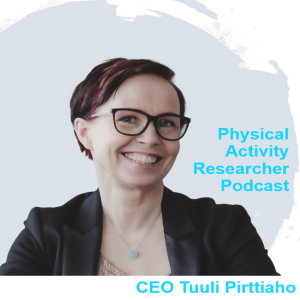
Sunday Oct 24, 2021
Sunday Oct 24, 2021
As a coach Pirttiaho supporting people’s self-intelligence, empowerment, mental fitness and physical recovery and potential, leadership and communication abilities and meaningful being - as a person, entrepreneur or leader.
Pirttiaho is a development and business oriented CPCC, PCC coach with 30 years experience in business and management as well as communication, HR development, service design and coaching. More about my services at www.thewind.fi / www.clues.fi / @thewindconsulting / @thewindcoaching / @cluescoaching
-----------------------------------------
This podcast episode is sponsored by Fibion Inc. | The New Gold Standard for Sedentary Behaviour and Physical Activity Monitoring
Learn more about Fibion: fibion.com/research
---
Collect, store and manage SB and PA data easily and remotely -
Discover new Fibion SENS Motion: https://sens.fibion.com/
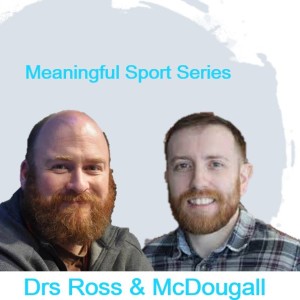
Friday Oct 22, 2021
Friday Oct 22, 2021
Why should people lose their homes for a hockey game to happen? The Olympic Games has been celebrated as a way of bringing people together and providing inspiration for the spectators. However, it is rarely mentioned that in many host cities, hundreds if not thousands of people have been displaced from their homes for the Games to take place. As our guests have argued in their article in Washington Post, "The Olympics is a disaster for people who live in host cities". This episode examines this statement and whether there is hope for a better future.
In this second part of our conversation with Drs Mac Ross and Michael McDougall, we examine the serious human rights issues that have accompanied the hosting of the Olympic Games.
Dr Michael McDougall is an Assistant professor of psychology at Keystone College, specializing in culture, sport and organizations,
Dr Mac Ross is an Assistant professor of kinesiology at Western University in London, Ontario, where he teaches history, sociology and management of sport.

Thursday Oct 21, 2021
Thursday Oct 21, 2021
This is a short bonus episode, in which Olli Tikkanen explains about the current publishing schedule, and also asks for a small favor to review the episodes on Apple Podcasts.
Publishing schedule
"Normal episodes" are published on Tuesday,
"Republication" are on Wednesdays,
"Meaningful Sport" episodes are on Fridays, on Sundays
"Practitioner's Viewpoint" episodes are on Sundays
How to leave a review and rating on the Apple Podcasts app:
https://www.businessinsider.com/how-to-leave-a-review-on-apple-podcasts
Physical Activity Researcher Podcast on Apple Podcasts:
https://podcasts.apple.com/podcast/id1479340829
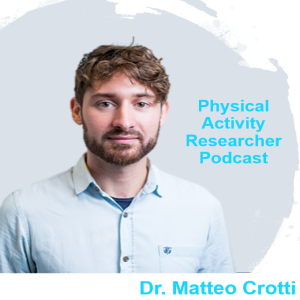
Tuesday Oct 19, 2021
Tuesday Oct 19, 2021
Dr. Matteo Crotti has got his PhD from the Liverpool John Moores University. He has been involved in various research projects concerning children’s physical activity, motor skills and health. Furthermore, he conducted a study concerning the relationship between play behaviours and motor skills in preschool children.
His early career researcher was in the field of Sports Sciences and his key research focus on physical activity promotion, physical activity assessment, physical education and coaching.
-----------------------------------------
This podcast episode is sponsored by Fibion Inc. | The New Gold Standard for Sedentary Behaviour and Physical Activity Monitoring
Learn more about Fibion: fibion.com/research
---
Collect, store and manage SB and PA data easily and remotely -
Discover new Fibion SENS Motion: https://sens.fibion.com/
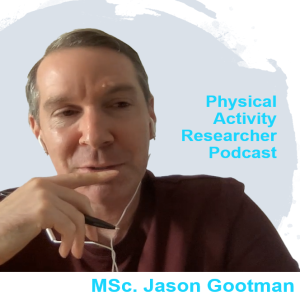
Sunday Oct 17, 2021
Sunday Oct 17, 2021
Jason is a Mayo Clinic certified wellness coach; he has a Master´s degree in exercise physiology and a certification in sports nutrition and strength and conditioning.
How to coach someone who wants to improve their biometrics like blood-sugar levels, blood pressure, and blood-cholesterol levels and on top of that improve their overall well-being via lifestyle improvements.
Within that topic we are going to touch on the role of automatic affective evaluations and a reflective attitude in motivation to exercise and physical activity.
---
This podcast episode is sponsored by Fibion Inc. | The New Gold Standard for Sedentary Behaviour and Physical Activity Monitoring
Learn more about Fibion: fibion.com/research
---
Collect, store and manage SB and PA data easily and remotely -
Discover new Fibion SENS Motion: https://sens.fibion.com/

Friday Oct 15, 2021
Friday Oct 15, 2021
The most recent Olympic Games in Tokyo were highly controversial for going forward despite the pandemic and resistance from the local community. Many debates have been held on whether those Games were a success or a failure, and importantly, for whom? The games were certainly exceptional due to the pandemic, but on the other hand, they were similar to previous games in many ways, such as by exceeding the budget and involving human rights concerns that are rarely mentioned in the ‘official’ Olympic narratives.
In today's episode with Drs Mac Ross and Michael McDougall, we will have a critical conversation of the potential dark sides of the Olympics. We start off by reflecting a bit on skateboarding as a new Olympic sport and the management of meaning that takes place when new 'sports' are included. We then ask about the impact of the Olympics on local communities and whether the Games are doing more harm than good, especially for the worlds most vulnerable populations.
Dr Michael McDougall is an Assistant professor of psychology at Keystone College, specializing in culture, sport and organizations,
Dr Mac Ross is an Assistant professor of kinesiology at Western University in London, Ontario, where he teaches history, sociology and management of sport.
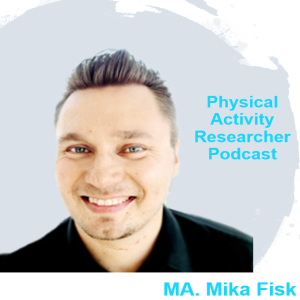
Tuesday Oct 12, 2021
Tuesday Oct 12, 2021
In this episode Mika Fisk we will share his story, how sedentary behaviour changes started a snowball effect to other health behaviour changes. Mika also share his experiences and thoughts related to Fibion Sitting and Activity Analysis.
Mika is a business coach and a sales and marketing professional. He is helping companies to grow and reach their full potential. He has previously said that he is on a mission to make life feel better for everybody.
---
This podcast episode is sponsored by Fibion Inc. | The New Gold Standard for Sedentary Behaviour and Physical Activity Monitoring
Learn more about Fibion: fibion.com/research
---
Collect, store and manage SB and PA data easily and remotely -
Discover new Fibion SENS Motion: https://sens.fibion.com/
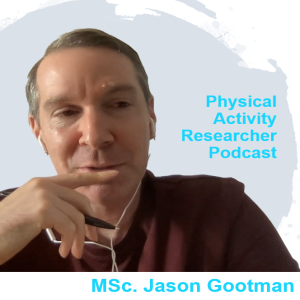
Sunday Oct 10, 2021
Sunday Oct 10, 2021
Jason is a Mayo Clinic certified wellness coach; he has a Master´s degree in exercise physiology and a certification in sports nutrition and strength and conditioning.
How to coach someone who wants to improve their biometrics like blood-sugar levels, blood pressure, and blood-cholesterol levels and on top of that improve their overall well-being via lifestyle improvements.
Within that topic we are going to touch on the role of automatic affective evaluations and a reflective attitude in motivation to exercise and physical activity.
---
This podcast episode is sponsored by Fibion Inc. | The New Gold Standard for Sedentary Behaviour and Physical Activity Monitoring
Learn more about Fibion: fibion.com/research
---
Collect, store and manage SB and PA data easily and remotely -
Discover new Fibion SENS Motion: https://sens.fibion.com/
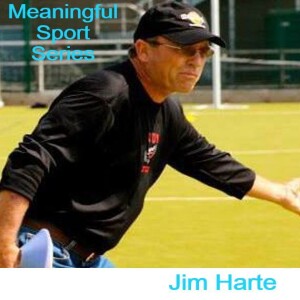
Friday Oct 08, 2021
Friday Oct 08, 2021
This is the second part of our conversation on storytelling in physical education with Jim Harte. In the past decade, Jim has worked with an innovative approach to physical education which is about inviting young people into a story and living that story throughout the school year. The story is lived through in songs (musical learning) and a performance that finishes the school year.
In this second part of the episode, we explore where the stories come from, learn about the ideas behind this year's story "The 20th Kid" and hear about the legacy that Jim hopes to leave in the world of physical education.
Jim has recently retired but continues to be active for example via his YouTube channel that includes resources (tips, interviews, etc.) for students, players and coaches. You can follow Jim on Twitter @Msccamp
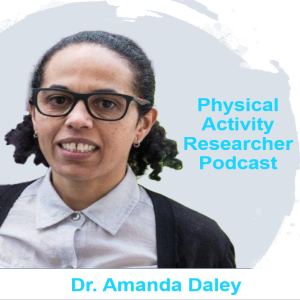
Tuesday Oct 05, 2021
Tuesday Oct 05, 2021
Amanda Daley is a Professor of Behavioural Medicine and an NIHR Research Professor in Public Health. Amanda is also the Director of the Centre for Lifestyle Medicine and Behaviour (CLiMB). Her work is focused on investigating the effects of lifestyle interventions on health outcomes. Amanda has a particular interest in testing lifestyle interventions that can be delivered by health care professionals within routine NHS consultations. She is the chief investigator on several on-going trials that are examining the effectiveness of community and general practice based physical activity and weight management interventions. Amanda currently leads a programme of work around testing the effects of physical activity calorie equivalent (PACE) food labelling on the purchase and consumption of food and drinks, and the role of standing desks during GP consultations. Amanda works closely with public health organisations, the NHS and other stakeholders. She is most interested in conducting randomised controlled trials, but also has a strong interest in conducting systematic reviews and interrogating large datasets.
-----------------------------------------
This podcast episode is sponsored by Fibion Inc. | The New Gold Standard for Sedentary Behaviour and Physical Activity Monitoring
Learn more about Fibion: fibion.com/research
---
Collect, store and manage SB and PA data easily and remotely -
Discover new Fibion SENS Motion: https://sens.fibion.com/
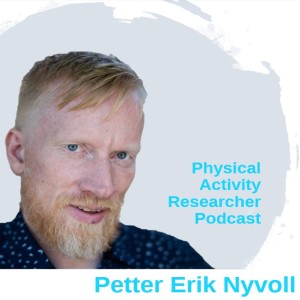
Sunday Oct 03, 2021
Sunday Oct 03, 2021
Petter Erik Nyvoll, co-founder of AweSM sales and marketing, is the sales expert who helps coaches, consultants and experts reach millions of people, and sell out their programs and courses. For the past 30 years, he has sold everything from scratchcards to investment opportunities, and everything in between. B2B, B2C, over the counter, through network marketing and over the phone and Zoom calls.
He has seen firsthand that focusing on what your client needs is pure magic for getting people to love you, share your ideas, and happily click your Buy Now button.
He also spent 5 years connecting entrepreneurs in Scandinavia with people like Tony Robbins, Brendon Burchard, Janet Attwood, Brian Mayne, Marianne Williamson and Eric Edmeades, through live events. Together with his partner Maria Rygge he had the sole proprietary rights for selling tickets to Tony Robbins events in Scandinavia.
Now he lives his dream life on the beach in Vietnam, with Maria Rygge, her two sons and their dog Coco.
Petter Erik’s magic has sparked a fire in the “sell knowledge online” world: from the annual AweSM event to exclusive high-level coaching and group programs, Petter Erik has infused his transformative touch into collaborations with the world’s top coaches, marketers, and entrepreneurs. All working towards making a difference for other people, and leave this world a better place. His work all boils down to bringing people together, and living their lives to the fullest.
In addition to helping his clients create money making webinars, irresistible offers and profitable upsells, his secret sauce to entrepreneurial success also includes a hefty dose of mindset strategies. So if you're looking to unleash your potential and sell the heck out of your transformational product- he might be the best person to help you get there.
-----------------------------------------
This podcast episode is sponsored by Fibion Inc. | The New Gold Standard for Sedentary Behaviour and Physical Activity Monitoring
Learn more about Fibion: fibion.com/research
---
Collect, store and manage SB and PA data easily and remotely -
Discover new Fibion SENS Motion: https://sens.fibion.com/

Friday Oct 01, 2021
Friday Oct 01, 2021
What if physical education was about inviting young people into a story and living that story through the school year? This is an approach that coach and teacher Jim Harte developed in his long career as a PE teacher. The story is lived through in songs (musical learning) and a performance that finishes the school year.
In this episode, Jim Harte reflects on his long career in teaching and coaching young people, the meaning he has found in his own career, and how his thinking and practice in physical education has evolved over the years.
Jim has recently retired but continues to be active for example via his YouTube channel that includes resources (tips, interviews, etc.) for students, players and coaches. You can follow Jim on Twitter @Msccamp
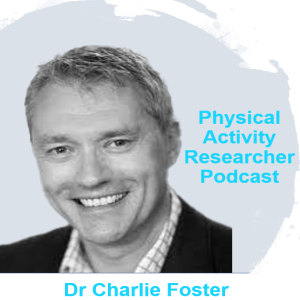
Tuesday Sep 28, 2021
Physical Activity Vocabulary Needs New Words - Dr Charlie Foster (Pt2)
Tuesday Sep 28, 2021
Tuesday Sep 28, 2021
Dr Foster has gone from being a PE teacher in a secondary school to one of the world's leading experts in the field, regularly advising the Government on how best to get the UK moving and in turn improve public health.
Since joining the University of Bristol in 2017, his main research focus has been on leading scientific reviews to update the current UK national physical activity guidelines, working with over 50 UK and international academics and practitioners across all age groups.
He's part of the Centre for Exercise, Nutrition and Health Sciences, in the School for Policy Studies, where he teaches on the MSc Nutrition, Physical Activity and Public Health course.
Dr Foster has published over 200 papers and is well-known for his ability to clearly communicate his research, often describing the promotion of physical activity as a blend of both art and science.
Prior to joining the University of Bristol, Dr Foster worked as an academic and Deputy Director at the Centre on Population Approaches for Non-Communicable Disease Prevention, University of Oxford.
In 2015, he was appointed the Chair of UK Chief Medical Officers Expert Committee for Physical Activity, providing advice on physical activity promotion to the governments of the four nations in the UK.
Dr Foster has global policy and advocacy experience through working with the World Health Organisation, the European Commission, and the Centers for Disease Control and Prevention (CDC) in the US.
His research has been recognised in awards from British Association of Sports and Exercise Sciences, International Society for Behavioural Nutrition and Physical Activity and UK Department of Health. He serves on a number of funding boards for charities, including Cancer Research UK.
-----------------------------------------
This podcast episode is sponsored by Fibion Inc. | The New Gold Standard for Sedentary Behaviour and Physical Activity Monitoring
Learn more about Fibion: fibion.com/research
---
Collect, store and manage SB and PA data easily and remotely -
Discover new Fibion SENS Motion: https://sens.fibion.com/
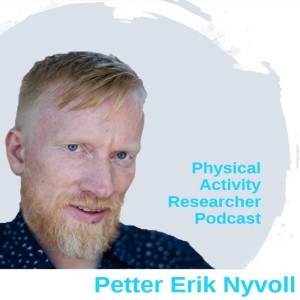
Sunday Sep 26, 2021
Sunday Sep 26, 2021
Petter Erik Nyvoll, co-founder of AweSM sales and marketing, is the sales expert who helps coaches, consultants and experts reach millions of people, and sell out their programs and courses. For the past 30 years, he has sold everything from scratchcards to investment opportunities, and everything in between. B2B, B2C, over the counter, through network marketing and over the phone and Zoom calls.
He has seen firsthand that focusing on what your client needs is pure magic for getting people to love you, share your ideas, and happily click your Buy Now button.
He also spent 5 years connecting entrepreneurs in Scandinavia with people like Tony Robbins, Brendon Burchard, Janet Attwood, Brian Mayne, Marianne Williamson and Eric Edmeades, through live events. Together with his partner Maria Rygge he had the sole proprietary rights for selling tickets to Tony Robbins events in Scandinavia.
Now he lives his dream life on the beach in Vietnam, with Maria Rygge, her two sons and their dog Coco.
Petter Erik’s magic has sparked a fire in the “sell knowledge online” world: from the annual AweSM event to exclusive high-level coaching and group programs, Petter Erik has infused his transformative touch into collaborations with the world’s top coaches, marketers, and entrepreneurs. All working towards making a difference for other people, and leave this world a better place. His work all boils down to bringing people together, and living their lives to the fullest.
In addition to helping his clients create money making webinars, irresistible offers and profitable upsells, his secret sauce to entrepreneurial success also includes a hefty dose of mindset strategies. So if you're looking to unleash your potential and sell the heck out of your transformational product- he might be the best person to help you get there.
-----------------------------------------
This podcast episode is sponsored by Fibion Inc. | The New Gold Standard for Sedentary Behaviour and Physical Activity Monitoring
Learn more about Fibion: fibion.com/research
---
Collect, store and manage SB and PA data easily and remotely -
Discover new Fibion SENS Motion: https://sens.fibion.com/
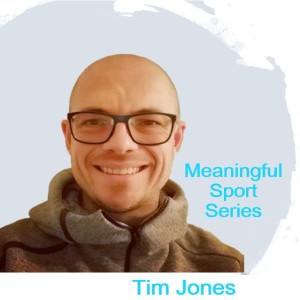
Friday Sep 24, 2021
Friday Sep 24, 2021
This is the second part of our conversation with Tim Jones on learning and development in football Academies.
It is well-established that sport participation involves many other forms of learning beyond sports skills. But are these learning experiences exclusively 'positive'? Are they mainly 'caught' or 'taught'? Should coaches intentionally introduce 'trouble' in athletes' pathways to foster learning and application of social and emotional competencies?
Tim Jones is a researcher, coach and creator of the 'Developer Tribe' who has spent extensive time thinking through these questions in his work. He is currently a PhD researcher at the University of Stirling and the head coach for the University of Stirling Women's Football Club.
Tim's Developer Tribe work includes education and mentoring for sports coaches and teachers as well as a podcast with researchers and practitioners working in the area of coach development.
You can follow Tim's work on Twitter @coachtimjones and @developer_tribe.
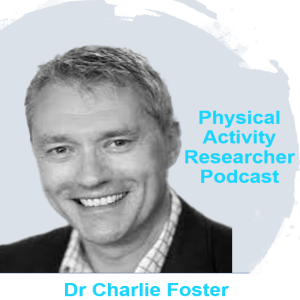
Tuesday Sep 21, 2021
Tuesday Sep 21, 2021
Dr Foster has gone from being a PE teacher in a secondary school to one of the world's leading experts in the field, regularly advising the Government on how best to get the UK moving and in turn improve public health.
Since joining the University of Bristol in 2017, his main research focus has been on leading scientific reviews to update the current UK national physical activity guidelines, working with over 50 UK and international academics and practitioners across all age groups.
He's part of the Centre for Exercise, Nutrition and Health Sciences, in the School for Policy Studies, where he teaches on the MSc Nutrition, Physical Activity and Public Health course.
Dr Foster has published over 200 papers and is well-known for his ability to clearly communicate his research, often describing the promotion of physical activity as a blend of both art and science.
Prior to joining the University of Bristol, Dr Foster worked as an academic and Deputy Director at the Centre on Population Approaches for Non-Communicable Disease Prevention, University of Oxford.
In 2015, he was appointed the Chair of UK Chief Medical Officers Expert Committee for Physical Activity, providing advice on physical activity promotion to the governments of the four nations in the UK.
Dr Foster has global policy and advocacy experience through working with the World Health Organisation, the European Commission, and the Centers for Disease Control and Prevention (CDC) in the US.
His research has been recognised in awards from British Association of Sports and Exercise Sciences, International Society for Behavioural Nutrition and Physical Activity and UK Department of Health. He serves on a number of funding boards for charities, including Cancer Research UK.
-----------------------------------------
This podcast episode is sponsored by Fibion Inc. | The New Gold Standard for Sedentary Behaviour and Physical Activity Monitoring
Learn more about Fibion: fibion.com/research
---
Collect, store and manage SB and PA data easily and remotely -
Discover new Fibion SENS Motion: https://sens.fibion.com/
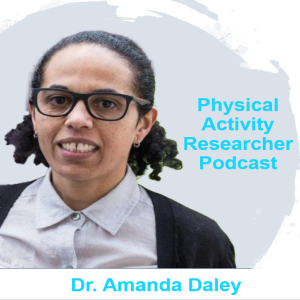
Monday Sep 20, 2021
Monday Sep 20, 2021
Amanda Daley is a Professor of Behavioural Medicine and an NIHR Research Professor in Public Health. Amanda is also the Director of the Centre for Lifestyle Medicine and Behaviour (CLiMB). Her work is focused on investigating the effects of lifestyle interventions on health outcomes.
Amanda has a particular interest in testing lifestyle interventions that can be delivered by health care professionals within routine NHS consultations. She is the chief investigator on several on-going trials that are examining the effectiveness of community and general practice based physical activity and weight management interventions.
Amanda currently leads a programme of work around testing the effects of physical activity calorie equivalent (PACE) food labelling on the purchase and consumption of food and drinks, and the role of standing desks during GP consultations. Amanda works closely with public health organisations, the NHS and other stakeholders. She is most interested in conducting randomised controlled trials, but also has a strong interest in conducting systematic reviews and interrogating large datasets.
-----------------------------------------
This podcast episode is sponsored by Fibion Inc. | The New Gold Standard for Sedentary Behaviour and Physical Activity Monitoring
Learn more about Fibion: fibion.com/research
---
Collect, store and manage SB and PA data easily and remotely -
Discover new Fibion SENS Motion: https://sens.fibion.com/

Friday Sep 17, 2021
Friday Sep 17, 2021
Academy football in the UK is a controversial context that many researchers have described as hierarchical, short-termist and embodying hegemonic notions of masculinity. Previously in this podcast, some conversations have been held on talented athletes’ experiences in these contexts and issues of identity foreclosure and progressive alienation from the craft.
But can we also find something more positive to say about development and learning in these context? What about social and emotional learning, life skills, and other types of personal development beyond football skills? Do coaches support these types of learning and how do they do that?
Tim Jones is a researcher, coach and creator of the 'Developer Tribe' who has spend extensive time thinking through these questions in his work. He is currently a PhD researcher at University of Stirling and the head coach for University of Stirling Women's Football Club.
Tim's Developer Tribe work includes education and mentoring for sports coaches and teachers as well as a podcast with researchers and practitioners working in the area of coach development.
You can follow Tim's work on Twitter @coachtimjones and @developer_tribe
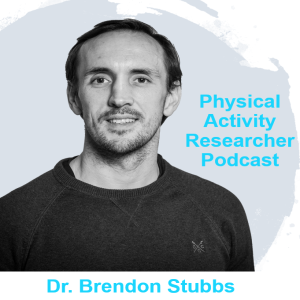
Tuesday Sep 14, 2021
Tuesday Sep 14, 2021
Dr Brendon Stubbs is a clinical-academic physiotherapist with an interest in physical activity & mental health, the mind-body interface, healthy ageing and meta-research. He has a BSc (Hons) in Physiotherapy, MSc in Neurological Rehabilitation & PhD in Pain Medicine & Rehabilitation.
He works locally and (inter)nationally with a fantastic group of collaborators with whom he has published over 500 academic papers in several leading journals across multiple scientific fields.
Dr Brendon Stubbs and Dr Simon Rosenbaum (UNSW, Australia) published the first evidence based book on the use of physical activity for the treatment of people with mental illness https://www.elsevier.com/books/exercise-based-interventions-for-mental-illness/stubbs/978-0-12-812605-9
In 2018, he was awarded the best research paper by a senior investigator from the Schizophrenia International Research Society (https://www.sciencedirect.com/science/article/abs/pii/S0920996416302419?via%3Dihub).
This podcast episode is sponsored by Fibion Inc. | The New Gold Standard for Sedentary Behaviour and Physical Activity Monitoring
Learn more about Fibion: fibion.com/research
---
Collect, store and manage SB and PA data easily and remotely -
Discover new Fibion SENS Motion: https://sens.fibion.com/
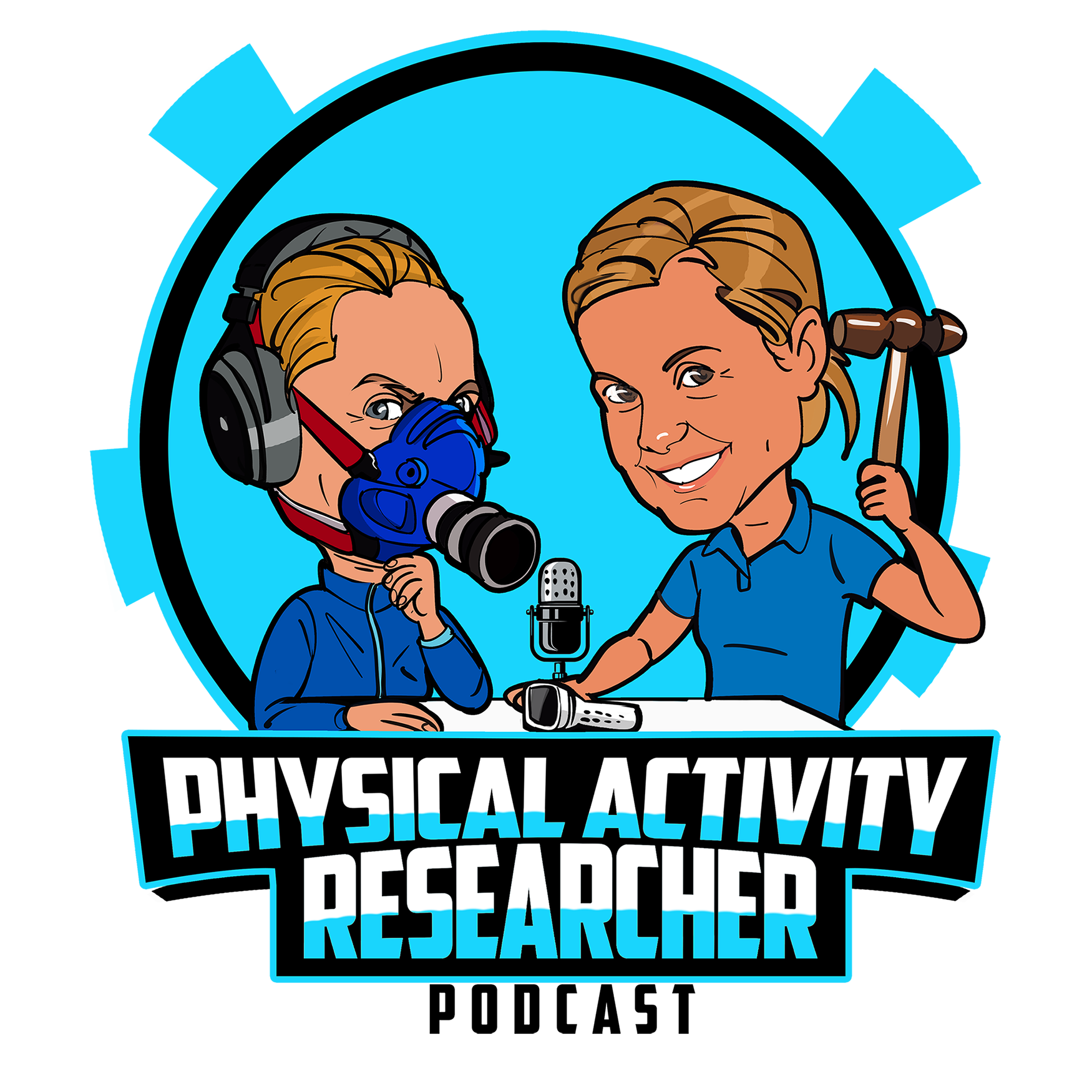
Hello and Welcome to Physical Activity Researcher Podcast!
Physical Activity Researcher Podcast is the source of the latest research findings on all things related to physical activity, exercise, and health. World-renowned scientists and experts as guests in an informal and relaxed interview style format. The podcast is for anyone who likes to learn scientific and evidence-based knowledge of physical activity, exercise, and health.
Physical Activity Researcher Series
The latest research findings in exercise physiology, physical education, coaching sciences, sport psychology, epidemiology, and public health.
Meaningful Sport Series
Meaningful Sport is dedicated to the exploration of meaning and meaningful experiences in sport and physical activity.
Practitioner’s Viewpoint Series
Practitioner’s Viewpoint Series has health and fitness professionals as guests. This series is for you if you are a Personal Trainer, Physiotherapist, Medical Doctor, Health Coach, or anyone working as a health and fitness professional.
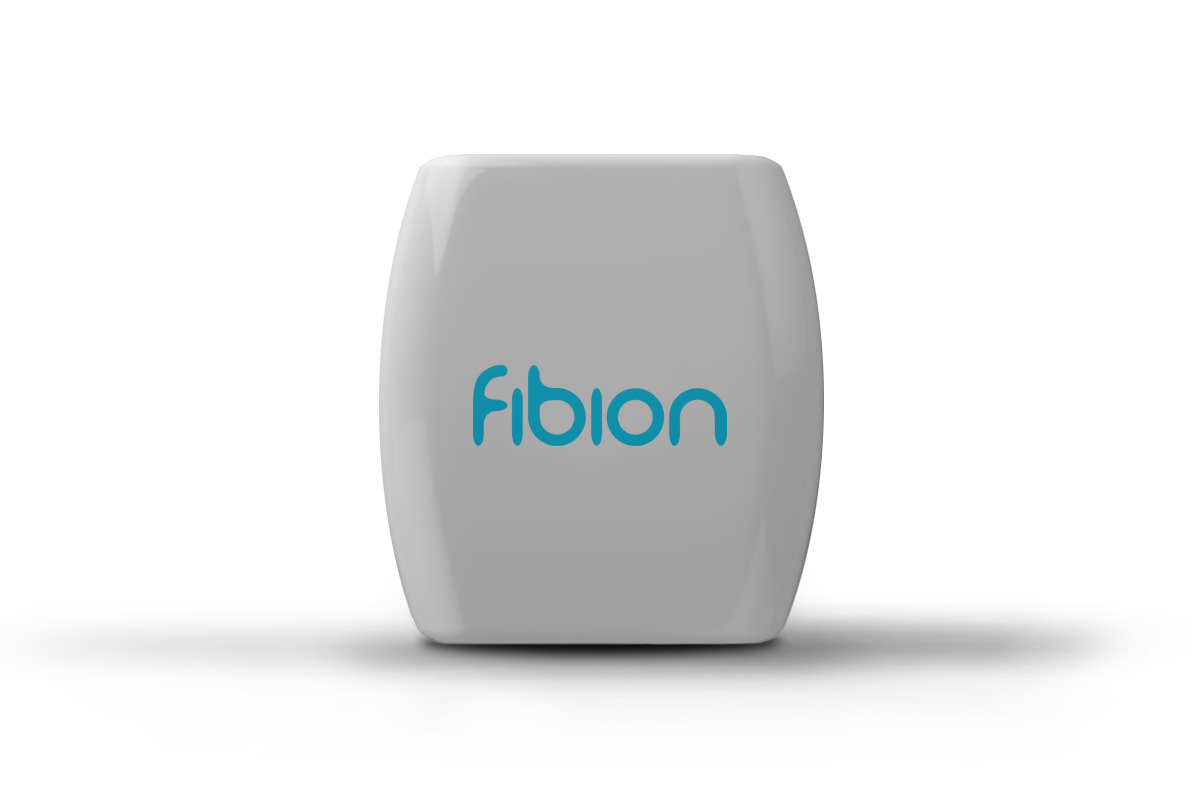
Podcast brought to you by
Fibion
Fibion is the new gold standard for sedentary behaviour and physical activity data collection for researchers. Cloud-based modern solutions make data collection easier than it has never been.
---
Fibion Pro is the first physical activity analysis product targeted from the beginning for health and fitness professionals. It is accurate and easy to use in connection with professional consultation meetings.
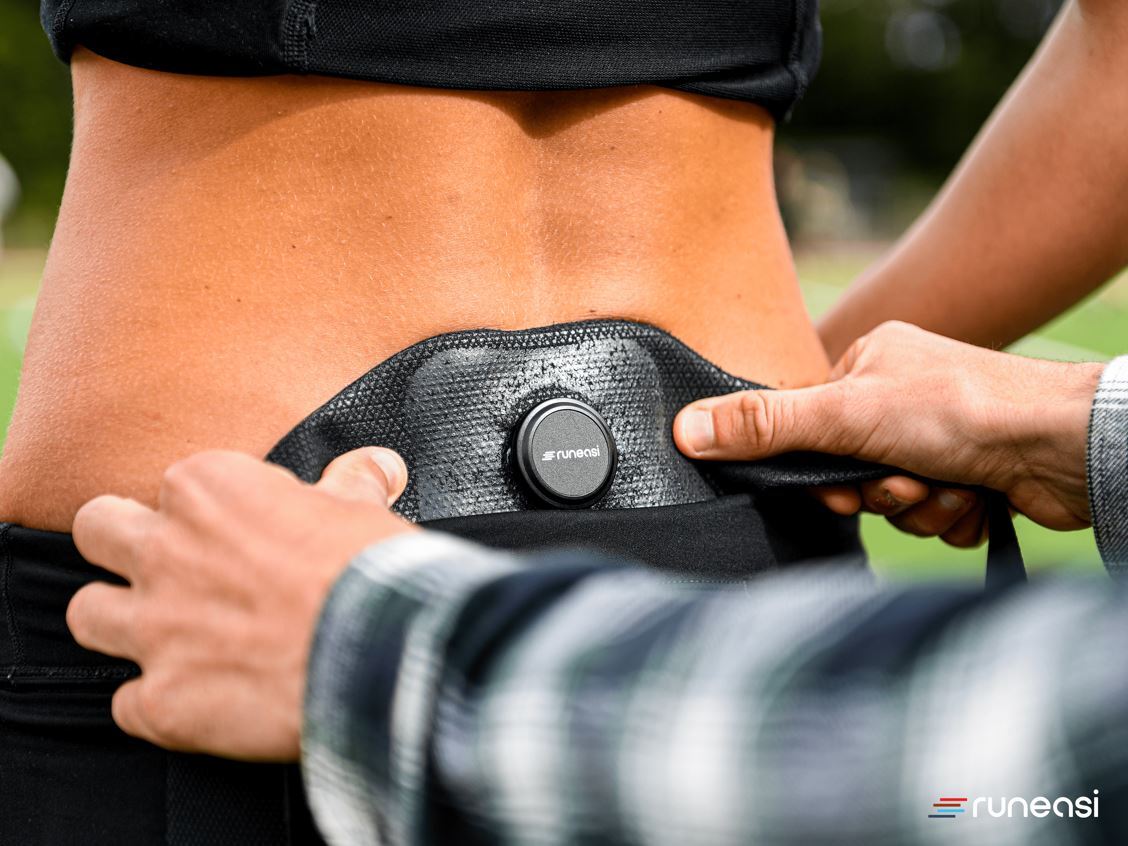
Practitioner's Viewpoint Series Brought to You by
Runeasi
Enabling value-based gait analysis for athletes with musculoskeletal conditions.
1. ASSESS
Runeasi’s real-time functionality gives you immediate and objective visual feedback about how well your patients are moving. Hence, you can immediately identify problem areas, weak links, or poor running technique.
2. ANALYZE
Test your verbal cues out on your patients as you guide them through rehabilitation and return to play/sport. Correct with confidence and surety in knowing what works for them.
3. ADDRESS
Help your patients emerge stronger than ever by giving personalized feedback on important technical parameters like impact asymmetry. Runeasi will help you improve your patients running technique and their ability to achieve your sporting goals!
Learn more: https://runeasi.ai
Book a free demo: https://calendly.com/runeasi/30min






